Jasmine Birtles
Your money-making expert. Financial journalist, TV and radio personality.

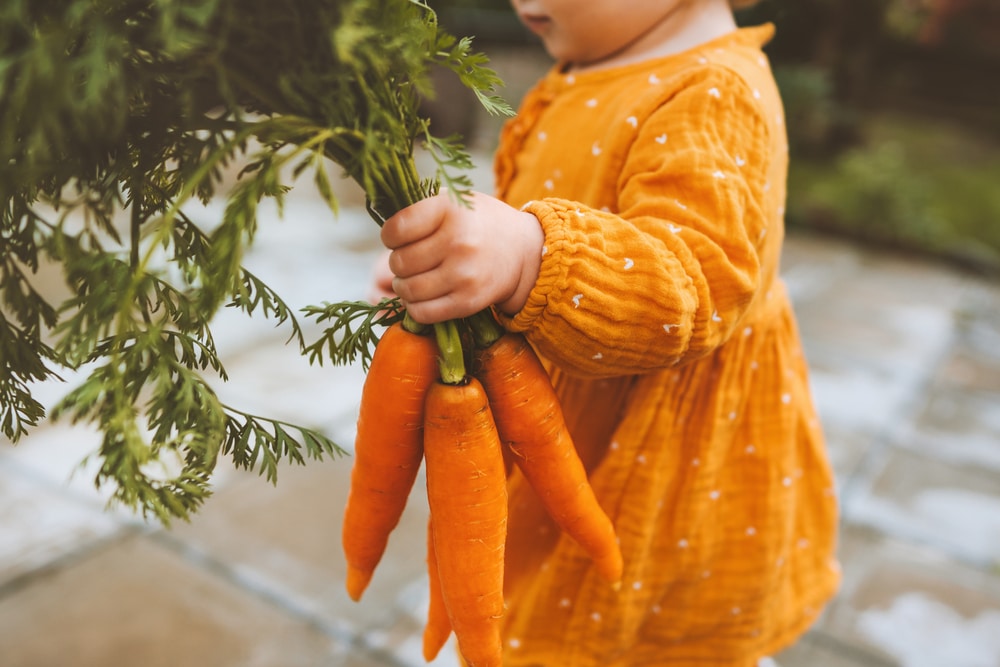
Eating more sustainable food is often chosen as a new year’s resolution by many people. In the age of climate change, the flexitarian diet and knowledge on the impact of farming, it’s clear to see why. That’s why we’ve put together some information on sustainable food and shared our top tips on how to eat more sustainably.
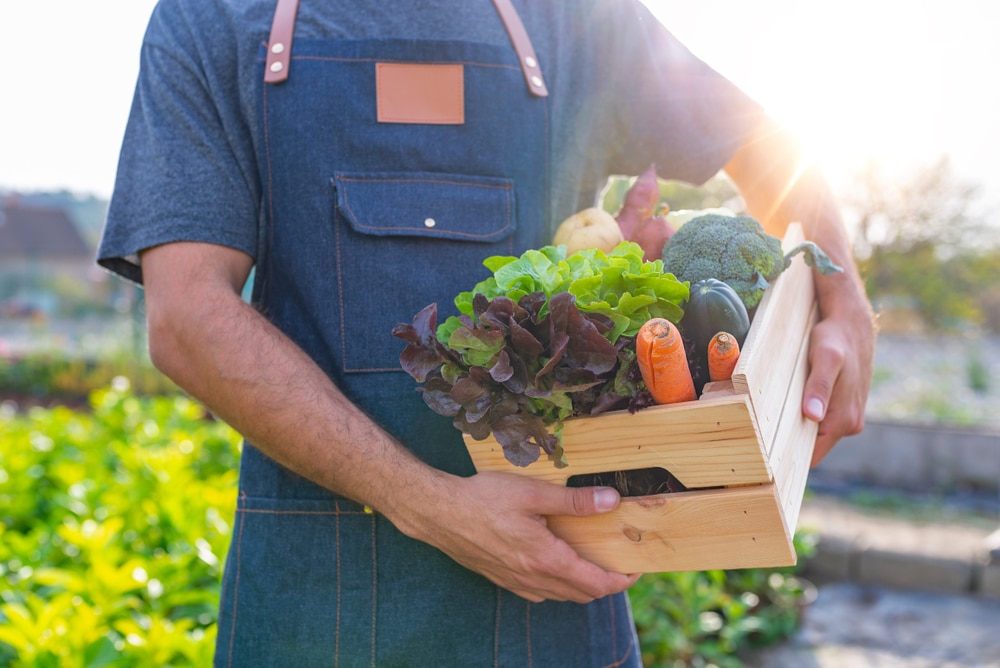
There is no set definition of sustainable food, but there are certain aspects with their own clear definitions, for example, sustainable food may be organic or Fairtrade. Fairtrade food is defined as being traded between companies in developed countries and produced in developing countries, where a fair price is paid for the products.
Organic food is farmed in a way in which no man-made fertilisers, pesticides, growth regulators and livestock feed additives are used. The use of genetically modified organisms is also generally prohibited in organic legislation.
Sustainable food has a few working definitions, most include:
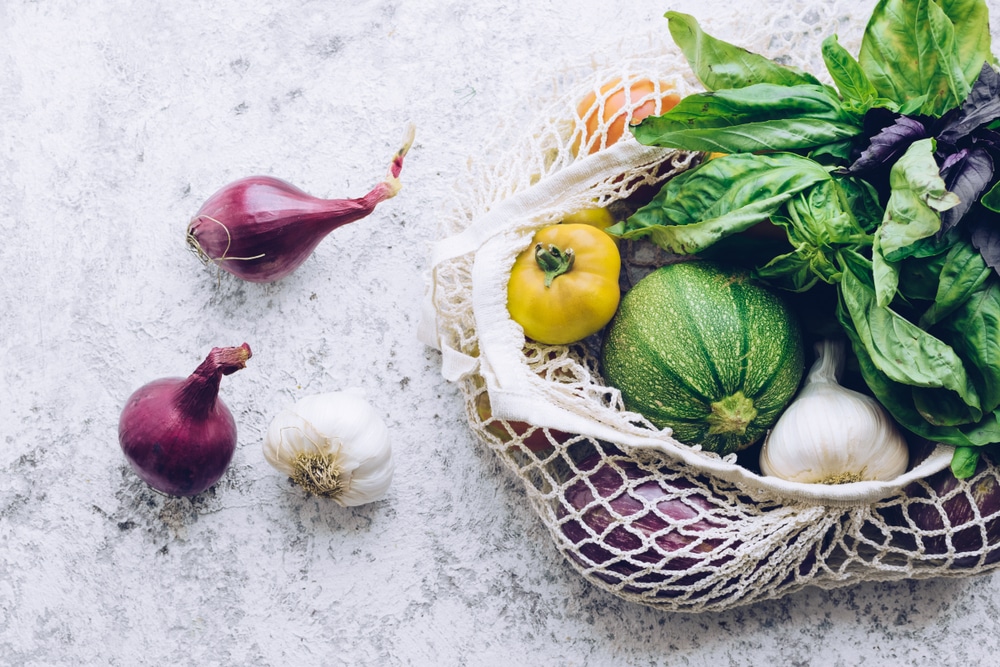
Sustainable eating aims to provide the nutrients we need to survive whilst improving our health. It should also protect the earth’s ecosystems without draining our natural resources. Eating sustainably can also reduce our carbon footprint lessening the effect of food production on climate change.
A way to eat more sustainably is eating locally, by sourcing food from local farmers, thus helping the local economy. Visiting local farmers markets to buy fresh seasonal fruit and vegetables is a great way to start making your diet more sustainable.
By eating with the seasons, the food you eat is picked at its ripest resulting in a better flavour and a higher level of nutrients. Out of season foods are often picked before they are at their ripest and transported to shops for you to eat them thus increasing the carbon footprint of your diet.
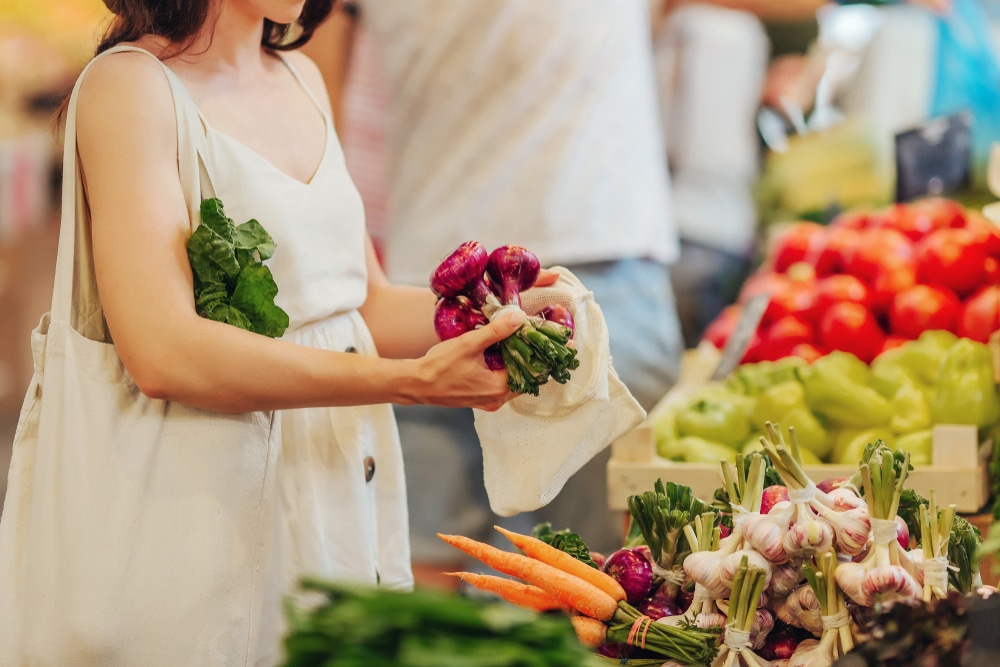
In short, no. A recent study by Oxford University showed that adopting a more sustainable diet could cut your food bill by up to one third. Flexitarian diets consisting of low levels of meat and dairy can reduce your food bill by up to 14%, not only having a positive impact on your health but also on your wallet.
Shopping for groceries at local farmers markets and shops can also help save you money. It can also have a good effect on the local economy. The higher demand for locally sourced food, the more opportunity there is for growth within the local farming industry. With growth comes more job opportunity for locals which creates more sustainable livelihoods within the community.
If you live in a town without local greengrocers or markets, it might be worth choosing a more eco supermarket. Recent studies have shown that Aldi is at the top of the list for the most sustainable supermarket.
With MSC sustainable fish, cruelty-free chicken and locally sourced fruit and veg, Aldi is the front runner. It is also relatively cheap compared to the other top UK supermarkets making it pleasant on the pockets and leaving you with more money left over at the end of the month.
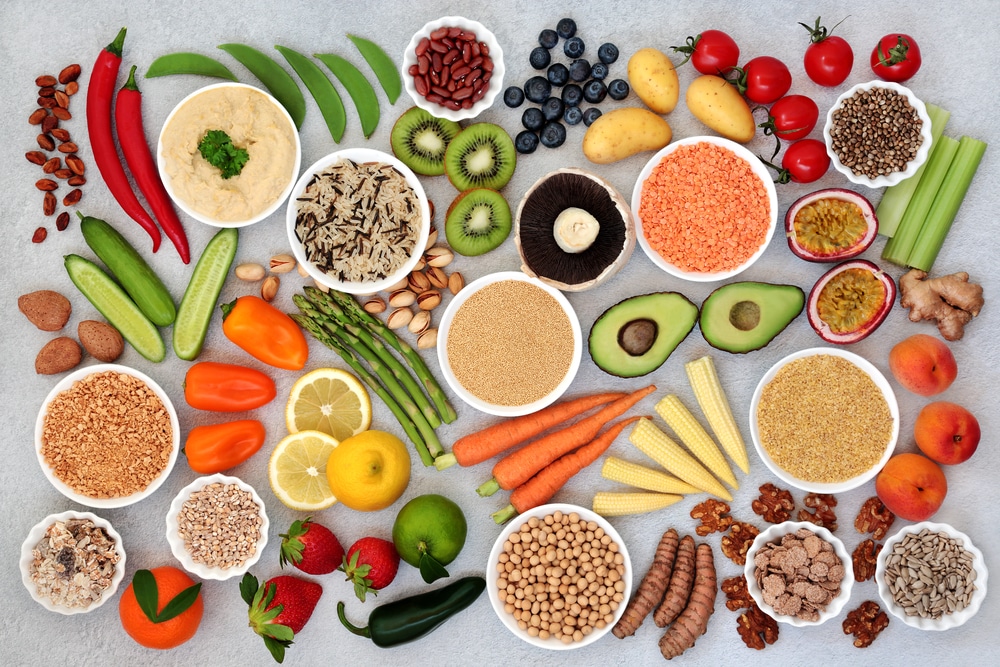
If you’ve read this far, you’re probably thinking about how to make your diet more sustainable, so we’ve compiled a few tips to help you on your way.
Red meats are not always sustainable due to the farming methods used; this is the same with lots of processed meats. Consider cutting down on consumption of red meat and opting for a flexitarian diet where a few days a week you don’t consume any meat products. This is an easy way to eat more sustainably even if you enjoy meat.
Not everyone has the outdoor space to have a full veggie patch. However, even something as simple as growing your own herbs can help. Growing your own foods helps to put into perspective the factors that help food to grow. Plus, you get to enjoy the fruits of your own labour.
Eating with the seasons’ guarantees you get the freshest foods that are to offer. These foods have been picked at their ripest. This means they have the highest level of nutrients possible leading to positive impacts on your health. They are also less likely to have been imported from abroad, lowering your carbon footprint as opposed to eating out of season foods.
Not only does shopping locally help the community, but it also ensures that money spent is reinvested in local farms. Profits can be spent improving farming practices. Further to this, buying locally grown food cuts down on the amount of fuel needed to transport them. This helps to lower your carbon footprint.
